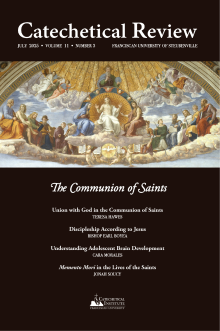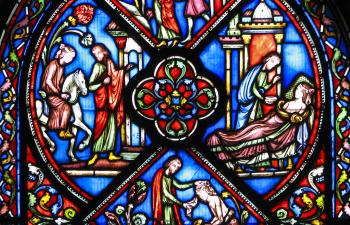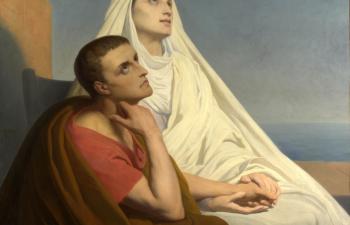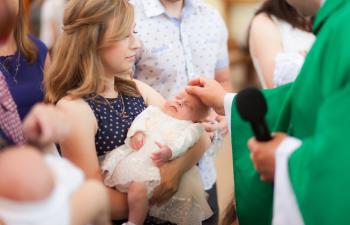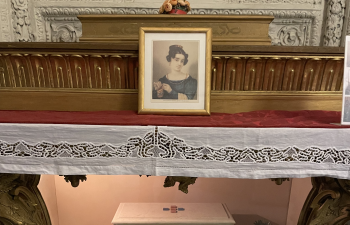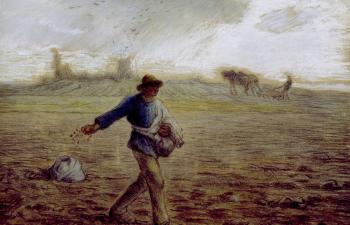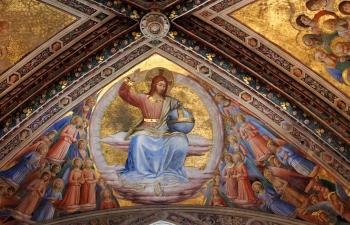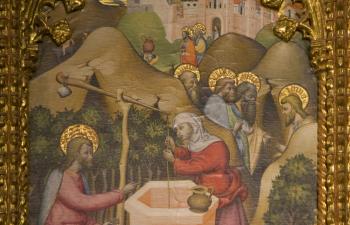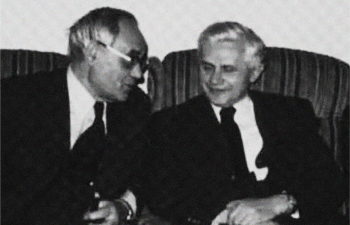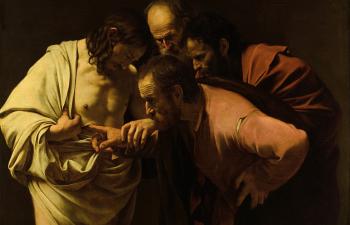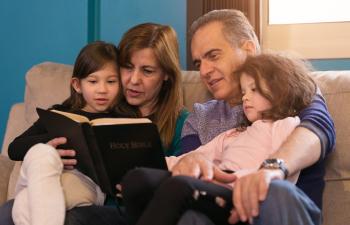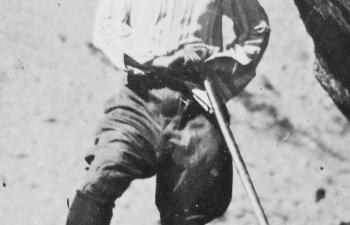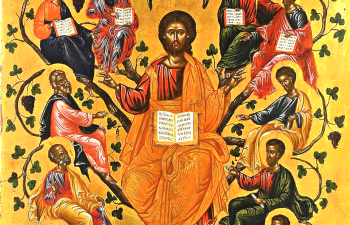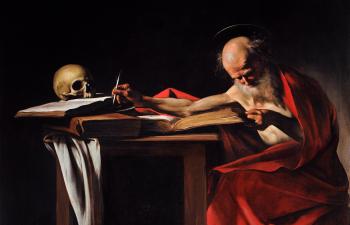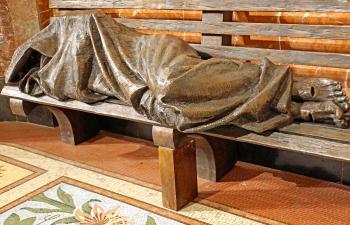 Recently in one of my religion classes, my ninth graders and I were thinking about how important the virtue of faith is in the Gospels. Faith usually seems to be a free-will assent that Jesus waits for in order to act in and through a person. But there is also the woman with the hemorrhage, whose faith draws healing power out of Jesus on its own (see Mk 5:30). Then there is the healing of the paralytic, which expanded our discussion to the Communion of Saints and the power of intercessory prayer: “when he saw their faith” (Lk 5:20), Jesus proceeded to heal the paralytic. One student pointed out that we don’t actually know whether the paralytic believed Jesus could do this. The man’s cure was provoked by the faith of his friends. What is this mystery? How are we united in Christ and with one another?
Recently in one of my religion classes, my ninth graders and I were thinking about how important the virtue of faith is in the Gospels. Faith usually seems to be a free-will assent that Jesus waits for in order to act in and through a person. But there is also the woman with the hemorrhage, whose faith draws healing power out of Jesus on its own (see Mk 5:30). Then there is the healing of the paralytic, which expanded our discussion to the Communion of Saints and the power of intercessory prayer: “when he saw their faith” (Lk 5:20), Jesus proceeded to heal the paralytic. One student pointed out that we don’t actually know whether the paralytic believed Jesus could do this. The man’s cure was provoked by the faith of his friends. What is this mystery? How are we united in Christ and with one another?
The ordinary means of this identification with Jesus is the Sacrament of Baptism. The sanctifying grace we receive is the very life of God in us; through baptism, we “come to share in the divine nature” (2 Pt 1:4). United to Christ, we are by that very fact united to God and so to one another. Jesus said, “I pray not only for them, but also for those who will believe in me through their word, so that they may all be one, as you, Father, are in me and I in you, that they also may be in us, that the world may believe that you sent me” (Jn 17:20–21). This is the reality of the Communion of Saints. Our personal sanctity is not the exclusive goal of our union with Christ; its ultimate purpose is the building up of the Body of Christ, the Church, the whole Christ. As CCC 1267 states: “Baptism makes us members of the Body of Christ: ‘Therefore . . . we are members one of another’ [Eph 4:25]. Baptism incorporates us into the Church. From the baptismal fonts is born the one People of God of the New Covenant, which transcends all the natural or human limits of nations, cultures, races, and sexes: ‘For by one Spirit we were all baptized into one body’ [1 Cor 12:13].”
Bl. Fr. Marie-Eugene of the Child Jesus, OCD, emphasizes that this union is the work of the Holy Spirit in and through each one of us: “We know that it is the Spirit of Love who carries out the eternal design of God. He placed the foundations for it by bringing to pass the mystery of the Incarnation in the womb of Mary. Since then, He continues His work by pouring into our souls a filial charity that identifies us with the Incarnate Word, Christ Jesus. This grace makes us one with Christ, that we may form with Him the whole Christ.”[1] In The Reed Of God, Caryll Houselander points out that this identification takes place slowly and, as its fruit, gives us God’s power to live his life here and now: “What we are asked to do is to be made one with Christ, to allow Him to abide in us, to make His home in us, and gradually, through the oneness that results from living one life, and through the miracles of His love, consummated again and again in Communion with Him, to become Christs, to live in Him as Our Lady did. When we are changed into Him as the bread into the Host, then with His power we can follow His example.”[2]
The rest of this online article is available for current Guild members.
This article is from The Catechetical Review (Online Edition ISSN 2379-6324) and may be copied for catechetical purposes only. It may not be reprinted in another published work without the permission of The Catechetical Review by contacting [email protected]



